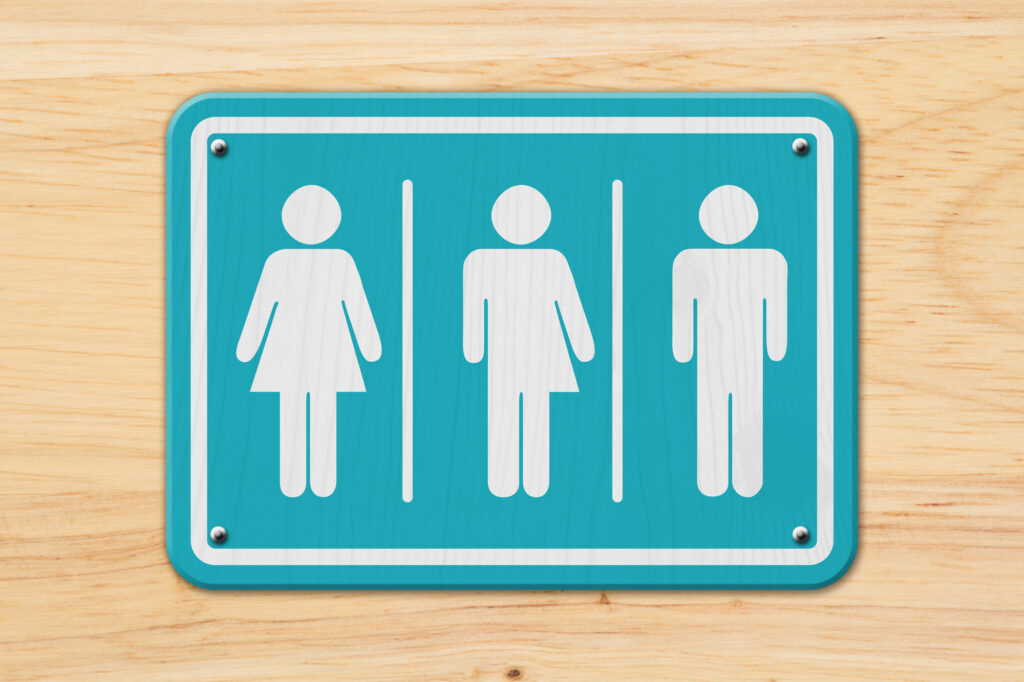In the north, there is a school with changing rooms and bathrooms without gender identification, with transgender students in mind. They are also used by students who are embarrassed to use common spaces, have health problems or are unable to clean themselves at home.
At the Frei João School Group, in Vila do Conde, gender self-determination measures, approved in parliament last month, have been applied for a long time, and “there have never been any problems at all”, Paula Lobo, the teacher, assured Lusa. that is behind this change.
The “Escola das Cores” project was implemented last year at Escola Básica Frei João, where 1.040 students from the 5th to the 9th year study. Since then, there have been two bathrooms and two individual changing rooms without gender identification.
The idea came about when he experienced the problems of a transgender student who “didn't feel comfortable in the boys' bathroom and, when he tried to enter the girls' bathroom, the employee wouldn't let him”, said the Physical Education teacher.
Paula Lobo felt that new rules were needed to make the school a safe and welcoming space and the solution turned out to be quite simple: The signs in the bathrooms intended for people with disabilities were removed and replaced by others – Common Toilet.
“Now it’s for everyone, regardless of gender, whether you’re a student, teacher, non-teaching staff or even coming from abroad. These are individual bathrooms that can only be used by one person at a time. It was easy, it didn't raise any problems and, also for that reason, I don't understand the hate speech and fear regarding the changes approved in parliament”, he maintained.
In December, deputies approved a set of measures that schools must adopt, such as ensuring “the well-being of everyone” in access to bathrooms and changing rooms, “making any adaptations that are considered necessary”.
The diploma, which is now in the hands of the President of the Republic, does not require the creation of mixed spaces, but requires that everyone have access.
“There are several cases of children and young people who end up spending the day without going to the bathroom”, said psychologist Ana Silva, from the Association of Mothers and Fathers for the Freedom of Sexual Orientation and Gender Identity (AMPLOS ), highlighting that many “know that they run the risk of being insulted or even attacked”.
In addition to the bathrooms, the “Escola das Cores” project gave rise to two individual changing rooms and “the reasons for using them may be for reasons of gender identity or not”, explained Paula Lobo.
Of the eight users, only five students use these changing rooms for reasons of gender identity. Then there are stories of those who are embarrassed to undress in front of their colleagues, of those who don't have the best conditions at home for taking a shower or even for their health.
Also here, only one student enters at a time, ensuring privacy and security and, to date, “there has never been any problem”, assured the teacher who has worked in the group for 26 years.
There are other schools where the changes are also being peaceful, said psychologist Ana Silva: “There is a private school in Lisbon, which had training on the subject, and there has never been any problem. They have a trans student this year and everything went well with the bathrooms or social name.”
The António Arroio School, in Lisbon, is also highlighted as a good example by the president of Amplos. António Vale's son is transgender, attended artistic school and “never had any problems”. But not all stories go well, warned António Vale.
Ana Sousa is the mother of two teenagers and her experience corroborates this idea. While the children attended Frei João de Vila do Conde “everything went well”, but the move to another school, in the 10th year, caused problems for the youngest son, who is trans.
At the beginning of the school year, Ana spoke to the class director, who “was kind and receptive, but made it difficult to change the name”.
With the second period of classes underway, there are still teachers addressing him by his birth name. According to Ana Cristina, there is even a Physical Education teacher who even called another transgender boy a “princess”.
Stories like this also reach Pedro Teixeira's office. The psychiatrist follows around 50 trans young people.
“Schools are very heterogeneous”, he said, lamenting that “there are provocative teachers”.
For Pedro Teixeira, director of the psychiatry service at Médio Ave and coordinator of the sexology consultation, the diploma approved in December only aims to ensure human rights and the mental health of these young people who live in psychological suffering from a very early age: “Imagine yourself living in the wrong body and when he arrives at school he cannot assume his identity”.
The vice-president of the Portuguese Society of Clinical Sexology acknowledged that there is “a cultural prejudice, the result of a conservative country”, which leads people to “speak without knowledge of the facts”.
For mothers like Ana Sousa, the promulgation of the diploma was important, so that families would no longer be at the mercy of “whoever they meet”: “It is obvious that a diploma will not change mentalities, but it can help guarantee the rights of children and of young people, who are already living in anguish”.



















Comments